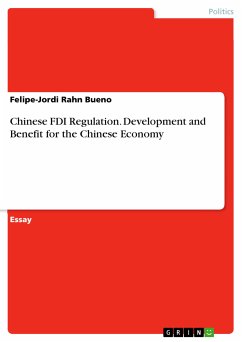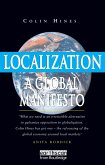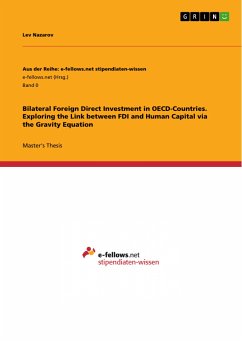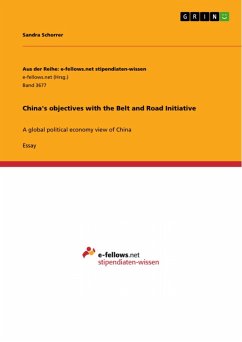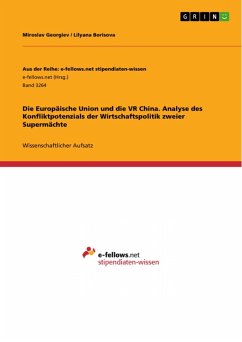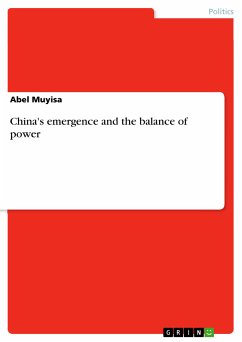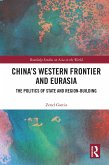Essay from the year 2018 in the subject Politics - Topic: Globalization, Political Economics, grade: 1,7, Free University of Berlin (Otto-Suhr-Institut), course: Multinational Enterprises (MNEs), Investment Policy and Sustainable Development, language: English, abstract: My paper will address the development of the Chinese economy and in which way the regulation of foreign direct investment (FDI) helped China to overcome a financial trough and to swing themselves up to one of the biggest players on the global market. Therefore, my guiding question will be "How has the Chinese regulation of FDI from the late 1970s until the 2000s boosted the economy of the country?". My topic and research question are relevant because the economic evolution China has been through is unique, even though its growth model was like those of other Asian or Communist countries and other states like the UDSSR failed to transition their market into a more liberal system. The astonishing success story that China has written was greatly influenced by the opening to FDI whilst still having restrictions on it to channel it into the right sectors for developing the country. This essay is based on the neoclassical growth theory which seems to fit the most since the three driving factors of this theory are labour, capital and technology, which are all important factors of China's economic growth. To explain its case, I will mainly use academic literature from researchers specialized on Chinese economy, a scientific article and a study. I will use data from the Worldbank and from various surveys that Long evaluated to point out and underline the growth of China's economy. I found that FDI clearly helped to spur the rise of the Chinese economy, even though the study of Ford did not find direct benefits of FDI in China in the long run but admits positive indirect effects. My findings in this paper are therefore that the applied regulative measures were effective at the time but might not be sustainable if they wanted to use this set of regulations in the future.
Dieser Download kann aus rechtlichen Gründen nur mit Rechnungsadresse in A, B, BG, CY, CZ, D, DK, EW, E, FIN, F, GR, HR, H, IRL, I, LT, L, LR, M, NL, PL, P, R, S, SLO, SK ausgeliefert werden.

